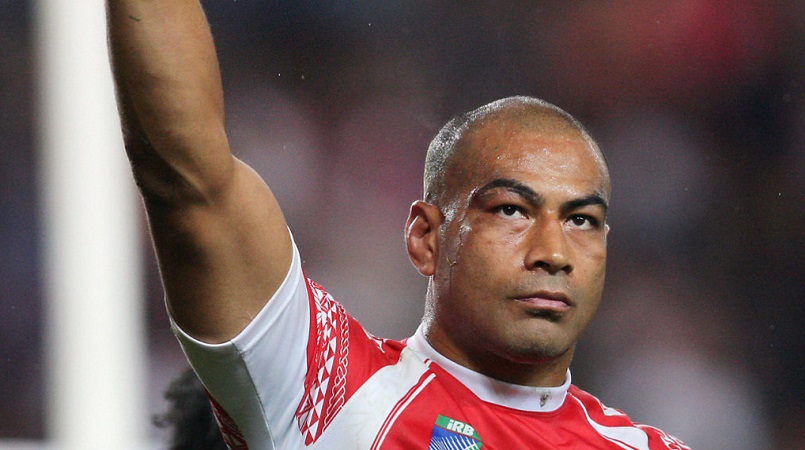
The gradual switch over a number of years to allow eight substitutes in a game of rugby union has led to increasing concerns over on-field safety, with tiring starting players often faced with half a team of fresh opponents running at them at full speed l
Former British Lions captain Sam Warburton even went as far as to suggest that "if something isn't done soon, a professional player will die during a game in front of TV cameras."
That theme has been picked up by five Lions legends, who sent an open letter to World Rugby demanding that the substitution rules are scrapped before it's too late.
It's a move that former Tonga and Pacific Islands captain, Inoke Afeaki, believes will not only protect players, but could actually save the game itself from a slow death at the grass roots, because he says, rugby has created its own version of Jurassic Park.
"And what happened to the dinosaurs when they got too big and too strong? I think we've gone down that road for a bit too long, and they've got to realize that it's not sustainable."
"The chances have always been there for someone dying on the field, it's the sustainability side that's more the question and the risk of someone dying at a level down or two, at provincial level or club level, I would say that the risk has grown there," Afeaki has told Pacific Beat.
New Zealand Herald rugby writer, Gregor Paul, says there is clear logic attached to the call to scrap substitutes.
"We do see fresh athletes coming on to the field in the last 20 minutes and hitting hard. And it'd be interesting to find out any statistical support to suggest that HIV incidents are more likely to occur in the back half of a game when there are fresh replacements on the field," he said.
But while much of the discussion around the substitution rules will focus on the elite players, Inoke Afeaki is concerned about the impact on schools rugby in New Zealand, and around the Pacific."
"It's a hard game to play now in schools because logistically, it's become a nightmare, because schools are performing like many professional teams, and they've got squads of 50, and the lesser schools who can't afford it are pulling out of the game."
"The (Pacific) islands are almost like a smorgasbord, they are shipping out their best players as fast as they arrive. You know, as soon as you see a good player, you're calling up an agent overseas to come and visit and take the kid away," Afeaki said. "I would say half of the number playing competitively in rugby 10 or 20 years ago, are gone."
But with so much of the money in rugby being generated by TV contracts, could that revenue be put in jeopardy if the power game is pegged back?
Gregor Paul and Inoke Afeaki are in agreement that the opposite is more likely to be the case, and the former Tongan international believes that while change may slow the game down, it will also make it more watchable.
"Faster doesn't necessarily mean entertaining. We're part of the entertainment business, we've got to put on one heck of a show...sponsors will jump in if we have some serious wow factor."
Gregor Paul argues that the relentless use of substitutes is actually cramping the style of those players with skill and flair.
"Two things tend to happen when teams empty their bench out in that middle period of the second half as they're prone to do, we see some of the flow disappear from the game as too many new players try to find the pace of the game and find their way into it. So we see the error count go up."
"And then secondly, the ability for people to find space on the field has closed down because any gap that does appear, a fresh pair of legs runs in and closes it," Paul told Pacific Beat.
"So I think there's a stronger argument that change actually has a strong commercial imperative, because it will actually potentially give us a more flowing and more entertaining contest," he added.
And the New Zealand Herald rugby writer says taking tactical substitutes out of the game can not only make it safer, but also reduce the financial burden on the Pacific Island teams.
"Right now we need to man squads of 23, so that actually comes with a greater expense. To actually reduce the commercial cost of running rugby teams would be beneficial to the islands."
"There needs to be a real rethink of the game and its population of people playing it because it's dying. Even in New Zealand, we have half the teams playing in clubs now, because the game doesn't work anymore," Inoke Afeaki argues.
But if the call for the substitution rules to be scrapped is heeded Gregor Paul believes it could create new opportunities at the elite level for the Pacific teams, and for Fiji, in particular, to shine.
"And I'd like to think if we get to that world, the flair and the creativity and the explosive nature of many of the Pacific athletes would actually be given a better platform to be displayed," he said.
"We saw Fiji come over here (to New Zealand) and look like a great team when they were able to exploit and find a bit of space. And if we can get a game that makes it easier to do that, some of the ball handling, imagination and creativity of Fiji's unstructured rugby is probably unparalleled."
Photo Planet Rugby Caption: Former Tonga captain, Inoke Afeaki
